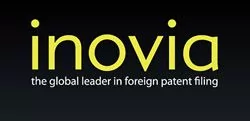On March 25, 2011, I had the pleasure of attending a talk at New York Law School by the Director of the US Patent and Trademark Office David Kappos entitled "Vision for the USPTO in the 21st Century: Ensuring America's Innovation Future".
During the presentation, Director Kappos gave his insight regarding current and future measures designed to improve the US patent system.
Peer to Patent
The first topic Director Kappos discussed was the Peer to Patent program, which is currently in its second pilot. For those unfamiliar with Peer to Patent, it is a voluntary program wherein applicants open their applications to the public who are then free to submit relevant prior art to the Examiner's attention. Both the Senate and House patent reform bills contain legislative language expanding upon the Peer to Patent program, whose ratification Director Kappos called a "no brainer". The Peer to Patent program is "pro-inventor", stated Director Kappos, since applicants receive stronger patents when the best prior art is submitted during prosecution. Possible future enhancements of the Peer to Patent include:
- "Pull" ability for the Examiners – This would allow Examiners to actively solicit the public for prior art.
- Peer to Patent incentives – Possible "prestige" credit for contributor who submits valuable prior art.
- Expansion of the Peer to Patent program such that anyone can comment or submit prior art related to any published application within a set time period.
- Recruitment of professional/technical organizations to participate in Peer to Patent program.
Patent Reform
Director Kappos next addressed the Patent Reform Bill which recently passed by an overwhelming majority in the Senate (95-5). A slightly different version of this bill is currently before the House of Representatives. Director Kappos called the transition of the US patent system to a "first to file" format a "huge positive move" which is "pro-independent inventor, pro-small inventor". Such a system, stated Kappos, would bring less ambiguity to the patent process, and that many applicants filing into the USPTO were already operating under a first to file system.
Director Kappos also discussed the prior user rights provisions in the House bill. Currently, prior users of a subsequently patented business method can assert a defense against infringement if "such person had, acting in good faith, actually reduced the subject matter to practice at least 1 year before the effective filing date of such patent, and commercially used the subject matter before the effective filing date of such patent." The relevant provision before the House would expand the defense to all patented subject matter, not just business methods. Such a provision would be "pro small business and independent inventor" since the defense does not invalidate the patent, it just provides an exception for a prior user.
Patent Fees
Patent fees were also the topic of much discussion during the presentation. Director Kappos reminded everyone that the USPTO is one of the rare government entities that is wholly funded by its incoming fees, rather than the US Treasury.
As such, he is obviously in favor of legislation whereby the USPTO would be able to retain and use the fees it collects. This would be a huge benefit since these funds would be used for improving the US patent system. Director Kappos also mentioned the 3-track patent filing system, whereby the applicant could choose the speed and cost of examination.
USPTO Backlog
During his closing remarks, Director Kappos fielded a comment from an attendee voicing his concern over the 20,000 application backlog currently before the Board of Patent Appeals and Interferences (BPAI). In response, Director Kappos indicated that a new judge will soon join the BPAI and offered hints to his/her identity:
- Former partner and professor
- Clerk for the Federal Circuit
- IP counsel for a Mid-western corporation
Any guesses as to who the new judge will be? Visit our
blog to share your thoughts.
The content of this article is intended to provide a general guide to the subject matter. Specialist advice should be sought about your specific circumstances.

